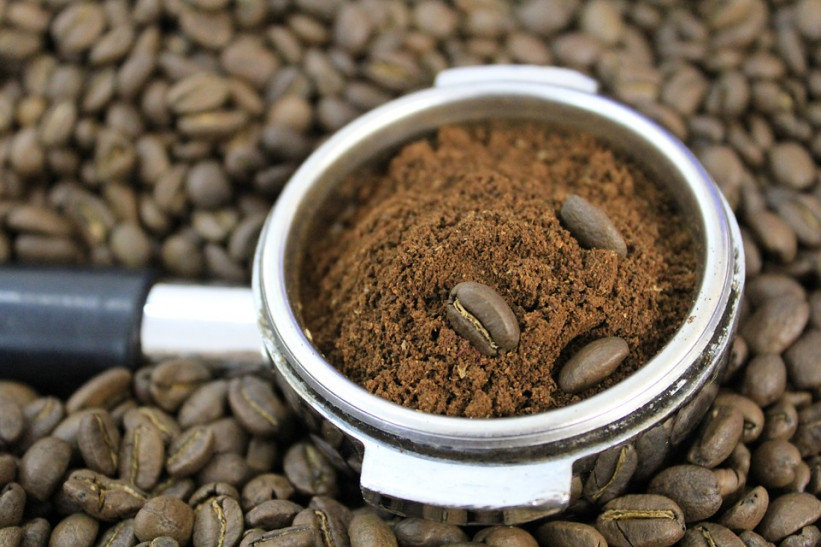
Why coffee before exercise
Coffee is a drink enjoyed worldwide to get the day off to a good start, but did you know that coffee is also widely used before exercise, as a pre-workout drink? Coffee contains caffeine, a stimulant that can help the body during exercise.
In this blog, we take a closer look at coffee and caffeine and answer questions such as: What is caffeine? Why should you use it before exercising? What effects does caffeine have on the body and performance? And what should you watch out for when using caffeine as a pre-workout drink? If you want to know more about using coffee and caffeine before exercise, read on!
What is caffeine

Caffeine is a stimulant found naturally in various plants, such as coffee beans, tea leaves and cocoa beans. It is an uplifting substance that can stimulate the nervous system and reduce fatigue. When you drink a cup of coffee and thus caffeine enters the body, it is quickly absorbed into the blood and diffuses through the body, allowing it to affect the brain and improve various physiological processes, such as alertness, concentration and reaction time.
The effects of caffeine
Caffeine can have various effects on the body and performance, especially in sports and physical activities. It can improve alertness, concentration and reaction speed, and reduce fatigue. In addition, caffeine can also boost fat burning and metabolism, making it a popular choice among people who want to lose weight. In sports, caffeine can increase physical performance, such as endurance and strength, and can slow down fatigue, allowing athletes to keep going longer.
What all is caffeine in
Caffeine occurs naturally in several plants, including coffee beans, tea leaves, cocoa beans, guarana berries and yerba mate leaves. In addition, caffeine is also artificially added to some soft drinks, energy drinks, food supplements and medicines. The extent of caffeine in these products varies widely. For example, a cup of coffee contains an average of 60-100 mg of caffeine, while a cup of tea contains about 30-50 mg of caffeine. Soft drinks and energy drinks usually contain less caffeine than coffee and tea, but the amount of caffeine can vary by brand and type.
The effect of coffee before exercise
Coffee before exercise can improve performance by increasing alertness and reducing fatigue. It can also boost metabolism and fat burning, making it a popular choice among people looking to lose weight.
Caffeine can also increase the pain threshold, allowing athletes to keep going longer and train harder. Using caffeine as a pre-workout supplement can therefore be beneficial, but it is important to use the right dosage and monitor any side effects, such as nervousness and sleep problems.
How much caffeine pre workout

There is no universal optimal amount of caffeine pre-workout that works for everyone, as sensitivity and tolerance to caffeine can vary from person to person. Most studies suggest that a dose of 3-6 milligrams of caffeine per kilogram of body weight about 30-60 minutes before exercise can help improve athletic performance and fat burning without causing too many side effects. This amounts to about 200-400 milligrams of caffeine for a 70-kilogram person.
Buy caffeine pills
In addition to getting caffeine in a cup of coffee, it is possible to buy caffeine in the form of supplements, including caffeine pills, which contain higher doses of caffeine than most foods. This can be beneficial for athletes who want to achieve greater performance enhancement or for people who are sensitive to the taste of coffee or tea.
Slimminglabs offers several caffeine supplements, including Thoraxin and Green Tea Extract. Thoraxin contains caffeine as well as other ingredients that contribute to performance enhancement, such as beta-alanine and L-arginine, while Green Tea Extract contains green tea extract in addition to caffeine, which can help burn fat and boost metabolism.
Beware of too much caffeine
Too much caffeine can lead to several side effects, including nervousness, palpitations, anxiety, sleep problems and stomach upset. In severe cases, caffeine overdose can lead to cardiac arrhythmias, convulsions and even death. People who are sensitive to caffeine, such as pregnant women, children, the elderly and people with cardiovascular diseases, should be careful with caffeine and limit intake. Therefore, do not drink too much coffee before exercising and, before taking any supplement, read the leaflet carefully.
